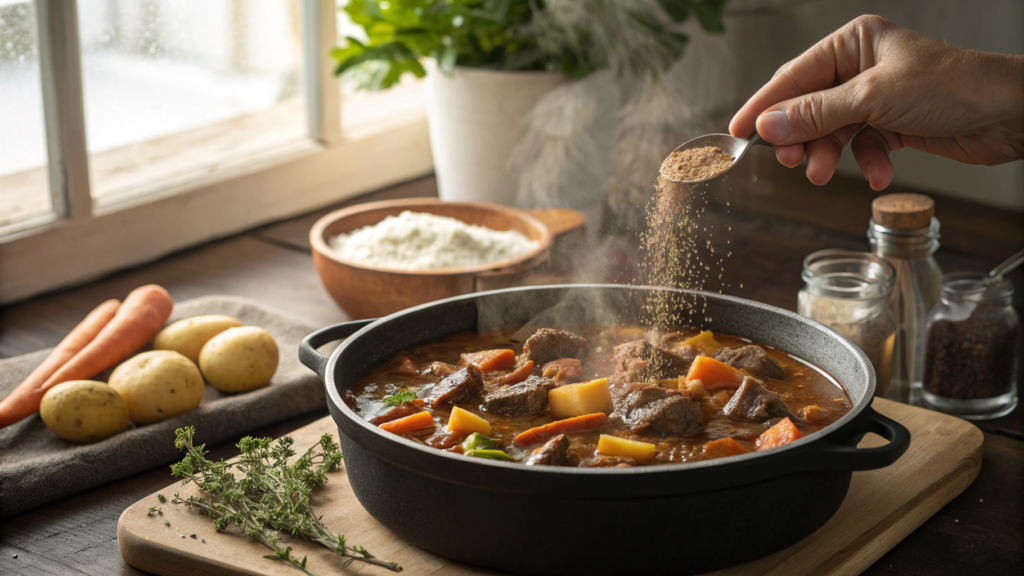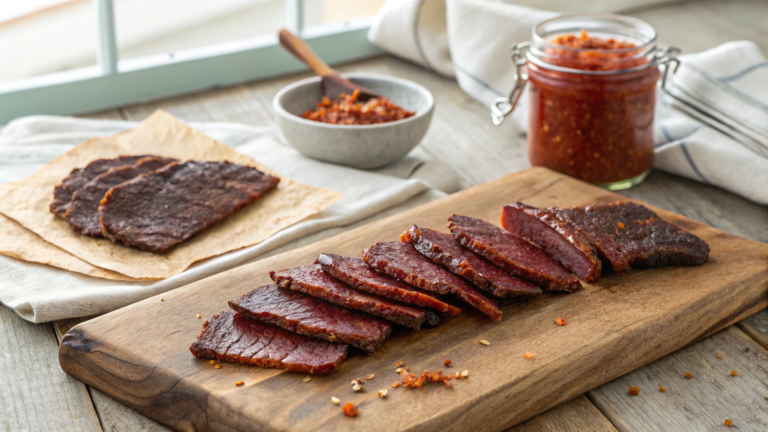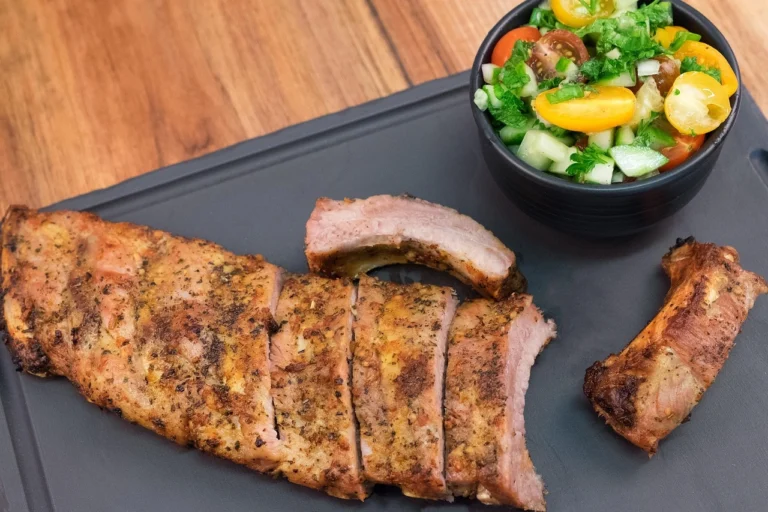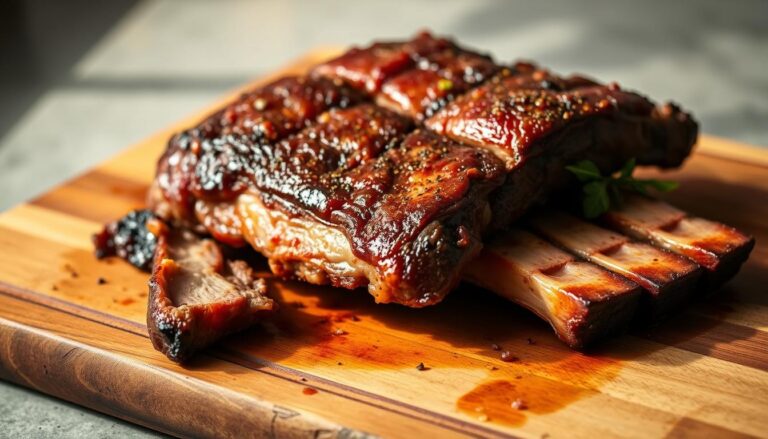Beef Stew Seasoning 101: Everything You Need for Rich, Savory Flavor
There’s something undeniably comforting about a warm bowl of hearty stew. As it simmers on the stove, the inviting aroma weaves through your home, stirring memories of family gatherings, laughter, and love. The secret to replicating that nostalgia lies in understanding beef stew seasoning. It serves as the foundation for rich flavor, enhancing the natural goodness of beef and vegetables. In this guide, you’ll discover essential cooking tips that will elevate your stew from ordinary to extraordinary. So, gather your ingredients and get ready to transform your next meal into a savory experience that warms not just the stomach but the soul.
Table of Contents
beef stew seasoning
Key Takeaways
- Beef stew seasoning enhances the natural flavors of your dish.
- Understanding seasoning is essential for a rich flavor profile.
- Essential ingredients can transform any stew into a comforting meal.
- Cooking tips can help achieve a perfectly balanced flavor.
- Homemade seasoning mixes offer versatility and freshness.
- Organic beef stew seasoning can provide additional health benefits.
Understanding the Basics of Beef Stew Seasoning
Creating an exceptional beef stew starts with mastering the basics of beef stew seasoning. A well-seasoned stew can elevate the dish from ordinary to extraordinary. You’ll want to incorporate key elements such as salt and pepper, which serve as fundamental building blocks for flavor. Using a mix of herbs and spices contributes to a well-rounded flavor profile that enhances the overall taste experience.
Knowing the seasoning importance in your stew lies in understanding how different flavors interact. Each ingredient plays a vital role, harmonizing to create a delectable dish. Essential herbs like thyme and bay leaves offer aromatic qualities, while spices such as paprika and garlic powder introduce depth. Balancing these ingredients ensures that the final product satisfies the palate and warms the soul.
Remember that exploring the basics of beef stew seasoning requires practice. Don’t hesitate to adjust your seasoning based on personal preferences. As you experiment, you’ll discover unique combinations that resonate with your taste, further refining your cooking technique.
| Ingredient | Role in Flavor Profile |
| Salt | Enhances all other flavors |
| Pepper | Adds heat and complexity |
| Thyme | Offers herbal notes |
| Bay Leaves | Contributes depth and aroma |
| Paprika | Adds sweetness and color |
| Garlic Powder | Increases savory richness |
Why Seasoning is Crucial for Beef Stew
The importance of seasoning in beef stew cannot be overstated. Proper seasoning elevates the dish, bringing out the natural qualities of the beef while adding layers of flavor. Seasoning is not just an afterthought; it plays a crucial role in the overall culinary experience. Without it, even the finest cuts of beef may taste bland and uninviting.
When you focus on enhancing beef flavor, you tap into the essence of what makes beef stew comforting and delicious. Seasoning introduces various taste profiles that complement the meat, vegetables, and broth, creating a harmonious blend that tantalizes your palate. Whether it’s salt, herbs, or spices, each element contributes to the overall impact of the dish.
The benefits of effective beef stew seasoning extend beyond mere flavor. Balanced seasoning enhances texture and depth, transforming an ordinary meal into something extraordinary. A well-seasoned beef stew captures the hearts of those who share it, making it a memorable centerpiece for gatherings and family dinners. By understanding the role of seasoning, you unlock the true potential of your beef stew.
Best Beef Stew Seasoning Ingredients
Creating a mouthwatering beef stew relies heavily on the best beef stew seasoning ingredients. The right combination of herbs and spices adds complexity and depth to every bowl. Understanding which flavors work together can transform a simple stew into a savory masterpiece.
Herbs that Enhance Flavor
When it comes to enhancing flavor, certain herbs take center stage:
- Thyme: Offers an earthy note that complements the richness of beef.
- Rosemary: Adds a pine-like aroma that brightens the overall flavor.
- Bay Leaves: Infuse the stew with a subtle bitterness, balancing the dish nicely.
Common Spices Used in Beef Stew
Spices play a crucial role in flavor enhancement as well. Consider these staples for your seasoning:
- Paprika: Provides a mild sweetness and vibrant color.
- Garlic Powder: Elevates the taste with its strong, aromatic quality.
- Onion Powder: Imparts a rich base flavor that enhances every ingredient in the stew.
Homemade Beef Stew Seasoning: A Simple Recipe
Crafting your own homemade beef stew seasoning can elevate the flavor of your dish significantly. This seasoning recipe allows you to control the ingredients, ensuring freshness and customization to suit your taste. Below, find a list of ingredients and preparation instructions to guide you through the process of making your unique seasoning blend.
Ingredients You’ll Need
- 2 tablespoons dried thyme
- 2 tablespoons dried rosemary
- 1 tablespoon paprika
- 1 teaspoon garlic powder
- 1 teaspoon onion powder
- 1 teaspoon freshly ground black pepper
- 1 teaspoon salt
- 1/2 teaspoon cayenne pepper (optional, for added heat)
Step-by-Step Preparation Instructions
- Measure all the ingredients and place them into a mixing bowl.
- Stir the ingredients together until they are well blended, ensuring an even distribution of spices.
- Transfer the mixture into an airtight container for storage.
- Store in a cool, dark place for up to six months.

homemade beef stew seasoning
Easy Beef Stew Seasoning Recipe for Beginners
If you’re venturing into the world of cooking and want to make a flavorful beef stew, this easy beef stew seasoning recipe is perfect for you. Even if you’re a novice in the kitchen, this beginner-friendly recipe will guide you through a few simple steps to create a delicious blend of spices.
To start, gather the following ingredients:
- 1 tablespoon garlic powder
- 1 tablespoon onion powder
- 2 teaspoons paprika
- 1 teaspoon black pepper
- 1 teaspoon salt
- 1 teaspoon dried thyme
- 1 teaspoon dried rosemary
By combining these spices, you create a well-balanced flavor profile that enhances your beef stew without overwhelming it. Following this simple seasoning ensures your dish has a rich aroma, making it enjoyable for everyone at the table.
Mix the ingredients together in a bowl until well combined. Use approximately 2 tablespoons of this easy beef stew seasoning recipe for every pound of beef you are cooking. This proportion guarantees a delicious taste without any complicated calculations.
Experimenting with this easy seasoning will build your confidence as a cook. Once you’re comfortable, you can modify the recipe by adding your favorite herbs or spices. Enjoy your delicious beef stew, and revel in the satisfaction that comes from creating a flavorful dish!
Traditional Beef Stew Seasoning Techniques
When preparing beef stew, traditional seasoning techniques play a pivotal role in crafting the dish’s rich, savory flavor. Across various cultures, unique regional variations highlight the diverse use of local herbs and spices, making each recipe distinct. Becoming familiar with these traditional methods allows you to create a stew that not only reflects your taste but also pays homage to culinary heritage.
Regional Variations in Seasoning
The beauty of traditional beef stew seasoning lies in the regional variations that have evolved over time. For instance:
- French Coq au Vin-style: Incorporates wine, mushrooms, and thyme, giving a deeper, earthy flavor.
- Irish Stew: Features a medley of root vegetables and parsley for a fresh note.
- Hungarian Goulash: Utilizes paprika as a primary seasoning, adding warmth and depth.
- Italian Beef Stew: Uses garlic, rosemary, and tomatoes, transforming the dish with a Mediterranean twist.
How to Adapt Traditional Recipes
Adapting traditional recipes provides an opportunity to personalize your stew while respecting the original flavors. Here are a few simple recipe adaptations you can try:
- Substitute herbs based on availability; for example, use basil instead of thyme.
- Add your favorite vegetables to the classic mix to introduce new textures and flavors.
- Experiment with different broths or stocks to enhance the flavor profile.
- Incorporate non-traditional spices that appeal to your palate, such as cumin or coriander.
How to Create a Flavorful Beef Stew Seasoning Mix
Creating a flavorful beef stew seasoning mix involves the careful blending of spices and herbs that complement the richness of the meat. Begin by selecting your base ingredients, which typically include salt, black pepper, garlic powder, and onion powder. These staples provide an essential foundation for your seasoning mix creation.
Next, enhance the mix with a variety of herbs and spices. Consider adding thyme, rosemary, and paprika for depth. Each ingredient brings its unique flair, ensuring a robust flavor profile. Adjusting the ratios of these elements can significantly impact the overall taste of your stew.
It’s crucial to taste-test as you progress. A balanced seasoning mix should neither overpower nor be overshadowed by the natural flavors of the beef and vegetables. Store your finalized flavorful beef stew seasoning mix in an airtight container, and keep it in a cool, dark place. This method helps preserve its freshness and potency for future use.
| Ingredient | Quantity |
| Salt | 2 tablespoons |
| Black Pepper | 1 tablespoon |
| Garlic Powder | 1 tablespoon |
| Onion Powder | 1 tablespoon |
| Thyme | 1 teaspoon |
| Rosemary | 1 teaspoon |
| Paprika | 1 teaspoon |
With these guidelines, you are well on your way to mastering the art of seasoning mix creation. Tailoring your beef stew seasoning mix to personal preferences ensures a delightful culinary experience every time you prepare this comforting dish.
Using Organic Beef Stew Seasoning: Benefits and Tips
Incorporating organic beef stew seasoning into your cooking routine offers a range of benefits that can enhance both health and flavor. Organic ingredients typically lack artificial additives and pesticides, making them a preferable choice for anyone interested in healthy cooking. Using organic seasonings not only contributes to a more wholesome meal but can also elevate the depth of flavor in your stew.
Many home cooks discover that organic herbs and spices tend to have a richer and more pronounced taste. This can lead to more satisfying dishes that stand out. If you’re concerned about where to source quality organic ingredients, local farmers’ markets can be an excellent starting point. Additionally, many grocery stores now carry organic options that make it easier to find fresh, flavorful ingredients.
Why Choose Organic Seasoning?
- Health benefits: Organic beef stew seasoning is free from harmful chemicals.
- Enhanced flavor: Organic ingredients often have a more authentic taste.
- Environmental impact: Choosing organic supports sustainable farming practices.
- Ingredient transparency: Organic products usually have clear labeling, allowing you to know what you are adding to your dish.

organic beef stew seasoning
Tips for Perfectly Balancing Your Beef Stew Seasoning
Achieving the perfect flavor in beef stew hinges on effective balancing of seasonings. You want to create a dish that resonates with your palate without overwhelming it. Perfecting your beef stew seasoning involves adjusting flavor to suit your preferences while avoiding common pitfalls that can lead to seasoning mistakes.
Adjusting Flavor to Your Preference
Start with a solid base of seasonings such as salt, pepper, and herbs. Taste frequently while cooking, allowing you to make necessary adjustments. If your stew lacks depth, consider adding a splash of soy sauce or Worcestershire sauce. These ingredients enhance umami without overpowering your dish. On the other hand, if your stew is too salty or strong, you can dilute it with additional broth or water, ensuring you maintain the desired consistency.
Common Mistakes to Avoid
Many home cooks make seasoning mistakes that affect the overall taste. Here are a few to watch out for:
- Under-seasoning at the start leads to a bland final product. It’s essential to layer flavors throughout the cooking process.
- Overusing strong spices can overpower the beef. Mix milder spices with more robust ones for a balanced flavor profile.
- Neglecting to taste as you go can prevent necessary adjustments.
- Failing to consider ingredient variability, such as different brands of stock, which can affect sodium levels.
Finding the right balance in your beef stew seasoning will elevate your dish, making it a memorable meal. Stay mindful of these tips, refining your approach to avoid common missteps while enhancing the flavors you love.
| Common Mistakes | Consequences | Solutions |
| Under-seasoning | Pale flavor | Add seasoning early in the cooking process |
| Overusing spices | Overpowering flavors | Balance strong spices with milder counterparts |
| Not tasting | Lack of flavor adjustments | Taste throughout cooking |
| Ignoring ingredient variability | Unexpected flavors | Adjust seasoning based on taste |
Conclusion
In this beef stew seasoning conclusion, it is clear that the right blend of herbs and spices paves the way for an extraordinary culinary experience. Understanding the importance of seasoning not only enhances the overall flavor profile of your stew but also empowers you to take your cooking skills to new heights. As you explore various techniques and create your own seasoning mixes, you’ll discover endless possibilities for flavor enhancement.
With the knowledge you’ve gained, the road to recipe success becomes much smoother. Armed with tips on balancing flavors and avoiding common mistakes, you can approach each stew confidently. The exploration of beef stew seasoning is an ongoing journey that will undoubtedly lead you to more delicious meals and satisfied diners at your table.
Remember, the key to a truly memorable beef stew lies in how well you season it. Each bite should reflect your skill and creativity, ensuring a comforting dish that warms not just the belly, but the spirit as well. Happy cooking!
FAQ
What is the best beef stew seasoning?
The best beef stew seasoning typically includes a blend of herbs and spices like thyme, rosemary, garlic powder, and onion powder, which enhance the natural flavor of the meat. You can also consider using a homemade beef stew seasoning mix for optimal freshness and flavor tailored to your taste.
How can I make homemade beef stew seasoning?
To make homemade beef stew seasoning, combine equal parts of dried thyme, rosemary, paprika, garlic powder, and onion powder. You can also adjust the ratios according to your preference. This easy beef stew seasoning recipe ensures that your stew will have a rich and savory flavor.
Are there traditional beef stew seasoning techniques?
Yes, traditional beef stew seasoning techniques vary by region, often incorporating local herbs and spices. For example, in some cultures, ingredients like bay leaves and black pepper are favored, while others might use spices unique to their cuisine. Adapting traditional recipes allows you to explore different flavors in your beef stew.
What are some tips for using organic beef stew seasoning?
When using organic beef stew seasoning, look for high-quality herbs and spices that are free from artificial additives and pesticides. Organic ingredients often have a richer taste, which can enhance the overall flavor of your stew. Sourcing from reputable suppliers ensures you get the best organic seasonings available.
How do I create a flavorful beef stew seasoning mix?
To create a flavorful beef stew seasoning mix, experiment with different herbs and spices, ensuring to balance flavors. Ratios are essential; a good starting point can be two tablespoons of thyme, one tablespoon of paprikas, and two teaspoons each of garlic and onion powder. Store your blend in an airtight container to preserve freshness.
What common mistakes should I avoid when seasoning beef stew?
Common mistakes include under-seasoning, which can make your stew bland, and overusing strong spices, which can overwhelm the dish. Always taste as you go and adjust seasoning gradually to achieve a balanced flavor. This way, you’ll avoid pitfalls and create a tastier beef stew.





